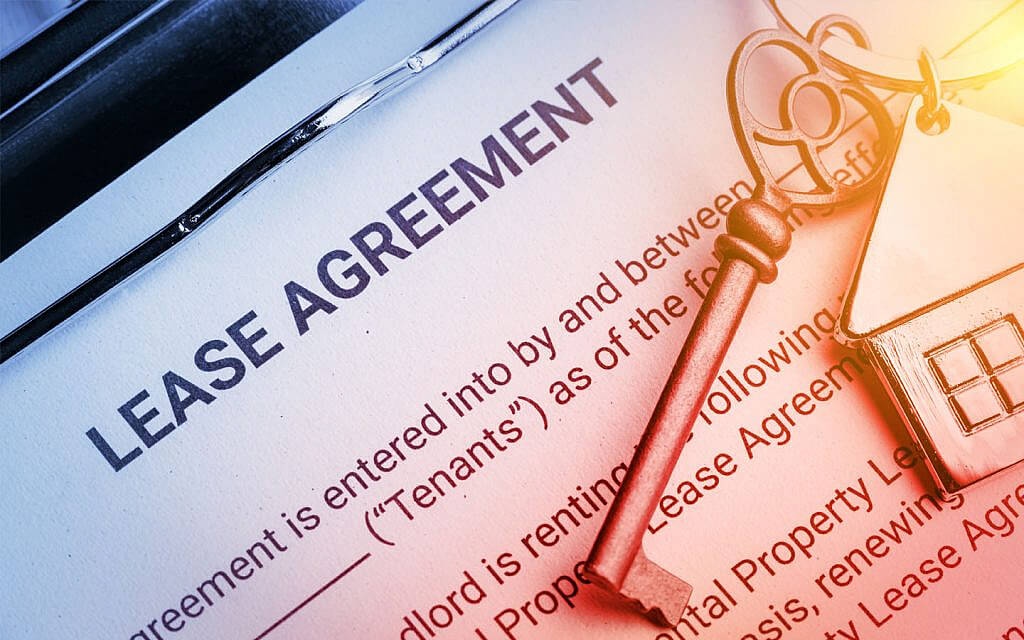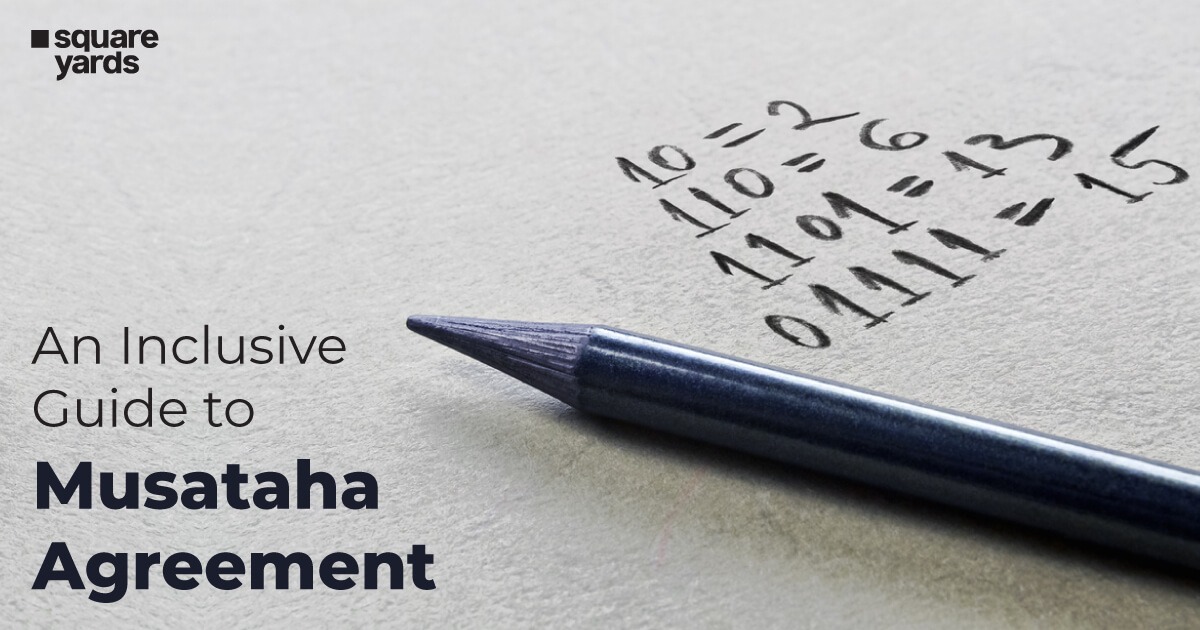Free ownership, usufruct, and Musataha are the three basic types of land ownership in Abu Dhabi. The various characteristics, conditions, and advantages of Musataha are covered in detail in this article. Musataha Agreement in Abu Dhabi creates a real property right (a right in rem) that entitles its holder to invest in, mortgage, lease, sell, or buy a piece of land belonging to a third party for a period of up to 50 years. By agreement of the parties, this right may be extended once for an additional 50 years.
Defining Musataha Contract
A certain kind of land ownership that enables its holder to rent a small area of public or government-owned land is a Musataha contract. Additionally, it grants the investor or property developer the right to cultivate the land for 10 to 50 years.
Why was the Musataha Agreement Introduced?

The one main reason behind the introduction of the Musataha agreement in Abu Dhabi is to help and inspire investors to start real estate projects that are on a more secure and safe foundation; the Musataha idea was established throughout the UAE to encourage people to invest more and with utmost assurance in the real estate sector.
Enlist Some Benefits of the Musataha Agreement.
A Musataha contract gives the possessor more freedom, comfort, and rights. This is very advantageous for individuals who want to take on lengthy and big real estate development projects. A Musataha agreement in Abu Dhabi gives the landowner’s permission for the property developer or investor to:
-
- Put a building together.
- Change the asset
- A plot of land belonging to a third party may be invested in, mortgaged, leased, sold, or purchased for a set period of time (not to exceed 50 years).
Once the time frame has passed, the parties may renew the right once for an additional term of up to 50 years with mutual permission.
How Does Musataha Agreement Affect the Expats?
Laws governing foreign nationals’ property ownership vary from one emirate to the next. For use in Abu Dhabi for a property that the government holds, a standard version of the Musataha agreement has been introduced. Only UAE nationals are permitted to have a Musataha contract in the UAE. However, they are only permitted to be held by foreign nationals (and the companies they own) in specified investment zones where land ownership is not permitted. Again, they are limited to a 50-year renewable term.
Difference Between the Long Lease Contract and the Musataha Agreement?

Long-lease agreements are the norm for land contracts in Abu Dhabi, but important distinctions between the two merit thought because Musataha contracts have some advantages.
|
Long Lease Contract |
Musataha Agreement |
|
Rights of ownership are not given to the property holder |
– The property holder has all the legal rights to make improvements to the property – Own the improvements made during the term. |
|
The tenant usually pays rent to the owner of the property |
Instead of paying rent, the developer or investor may split profits with the landowner. |
|
The contracts contain clauses for early termination or renewal. |
Musataha contracts may not be renewed and therefore be more difficult to end early. |
|
This is not applicable to this kind of contract |
A Musataha contract holder may mortgage the property and obtain a bank loan. |
|
This is not applicable to this kind of contract |
In the event of death, the holder may be left to the holder’s dependents. |
Additionally, a holder of Musataha (or a landowner, for that matter) may petition for a waiver; DARI Abu Dhabi provides a rapid, effective, and secure process for this. In effect, a Musataha waiver ends the contract before its expiration date and returns ownership to the landowner. This may occur for a number of reasons, such as the developer’s inability to continue working on the project. However, the original contract will probably have financial clauses in place, so depending on the grounds for termination, compensation or penalties may need to be paid.
Can Long Lease Contract and a Musataha Agreement Be Swapped?

Owners of long leasing contracts may seek to convert their agreements into Musataha contracts; DARI also provides this service. Renegotiation of the contract’s duration and rent obligations would presumably be required in case of a transfer of this nature. Additionally, these conditions require the agreement of both parties.
Are there any Conditions for Signing a Musataha Contract?
Yes, there are some conditions for signing a Musataha contract. As we know the government of Abu Dhabi owns the land. It will need to specify the parties, as with other contracts.
-
- Who all are involved
- The specifics of the contract’s subject matter (in this example, land)
- The phrases
- Duration
- Construction rights
- Termination provisions
To further understand your rights and obligations, you should seek legal counsel. Additionally, keep in mind that only Emirati citizens are qualified to participate in Musataha with the government of Abu Dhabi.
Cost of Acquiring the Musataha Agreement?
The annual rent (land area in square feet x price per square foot) is multiplied by the number of years of the contract to determine the Musataha contract value.
Each location in Abu Dhabi has a different price per square foot. For instance
-
- 0.75 AED per square foot in Abu Dhabi
- 0.25 Dhs/SqFt for Al Dhafra.
The fee of the Musataha agreement in Abu Dhabi is based on land use:
-
- 1 percent of the total annual rent for business purposes
- 2% for other purposes.
The Musateh (owner of the Musataha right) is always responsible for paying the price.
How Does One Pay the Musataha Fees?
On DARI, a feature named “Rent Payment” is available. The holder can pay their rent through this service, whether they accrued fees or paid in advance.
Recommended for you :
|
Mastering Tawtheeq Abu Dhabi |
|
|
Know About Tenancy Laws in Abu Dhabi |
|
|
Know The Abu Dhabi Property Laws |
|
|
How To Do Business Setup in Abu Dhabi |
|
|
Guide to Cancelling Tawtheeq Agreement |
|
|
Acquiring a Title Deed in Abu Dhabi |
Frequently Asked Questions (FAQs)
The Musataha fee is 225 AED approx.
A certain kind of land ownership that enables its holder to rent a small area of public land is a Musataha contract.
The Real Estate Law grants both the Musataha right and the usufruct right, with the Musataha right granting the Musataha right holder the right to construct, own, and use the building for the duration of the Musataha. Usufructs simply give the right to utilize something. What are the fees for Musataha?
What is the Musataha law in Dubai?
What is the difference between Usufruct and Musataha?




